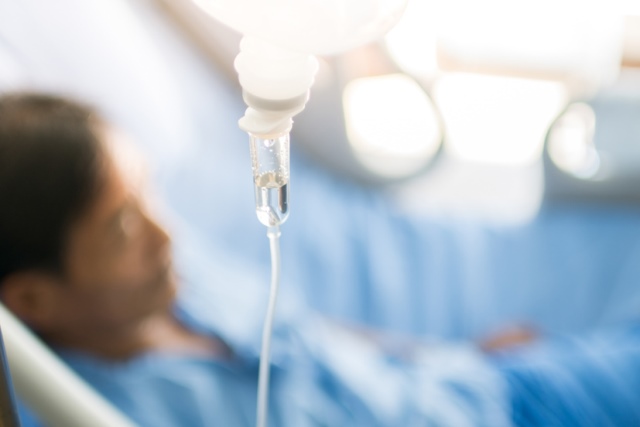The US Food and Drug Administration (FDA) has approved Sarclisa (isatuximab) in combination with bortezomib, lenalidomide, and dexamethasone (VRd) as a first line treatment option for adult patients with newly diagnosed multiple myeloma (NDMM) who are not eligible for autologous stem cell transplant (ASCT).
Sarclisa is the first anti-CD38 therapy in combination with standard-of-care VRd to significantly reduce disease progression or death (by 40%) compared to VRd alone for patients with NDMM not eligible for transplant.
Thomas Martin M.D., Helen Diller Family Comprehensive Cancer Center Clinical Professor of Medicine at the University of California San Francisco, said: “Multiple myeloma is most frequently diagnosed in patients 65 years and older, yet the options for treatment in this population are limited due to a combination of age, frailty, and co-morbidities.
“This has resulted in a longstanding need for new treatment options that can potentially improve the standard-of-care. The significant clinical benefit and improvements in progression-free survival demonstrated by the IMROZ regimen of isatuximab plus VRd versus VRd alone make today’s approval an important moment for this vulnerable patient population and the larger multiple myeloma community.”
This decision marks the third approved indication for Sarclisa in the US and the first approved indication in newly diagnosed patients. The FDA evaluated Sarclisa for this indication under Priority Review, which is reserved for medicines that represent potentially significant improvements in efficacy or safety in treating serious conditions. Sarclisa is also currently approved in more than 50 countries across two indications for the treatment of people with relapsed or refractory disease.
Brian Foard, Executive Vice President, Head of Specialty Care, Sanofi, said: “Since first launching in 2020, we have made significant progress towards our ambition of establishing Sarclisa as a best-in-class therapy. The FDA’s decision marks another momentous milestone toward our goal and expands the reach of this potentially transformative therapy to a larger population.
“With today’s approval, doctors now have an important new option at their disposal that’s been shown to slow disease progression for longer compared to the current standard-of-care for adults living with newly diagnosed multiple myeloma who are not eligible for transplant in the US.”
The FDA approval is based on data from the IMROZ phase 3 study recently presented at the American Society of Clinical Oncology (ASCO) 2024 annual meeting and published in The New England Journal of Medicine. IMROZ is the first global phase 3 study of an anti-CD38 monoclonal antibody in combination with standard-of-care VRd to significantly improve PFS versus VRd alone.
In the IMROZ study, Sarclisa-VRd followed by Sarclisa-Rd met the primary endpoint of PFS, significantly reducing the risk of recurrence or death by 40%, compared to VRd followed by Rd, in patients with NDMM not eligible for ASCT (HR 0.60; 95% CI: 0.44 to 0.81, p=0.0009). At a median follow-up of 59.7 months, the median PFS with the Sarclisa-VRd combination was not reached versus 54.3 months with VRd. The estimated PFS-rate at 60 months was 63.2% for patients treated with Sarclisa-VRd versus 45.2% for VRd.
Sarclisa-VRd also met several secondary endpoints which demonstrated deep responses in this patient population:
- Approximately three-quarters (74.7%) of patients treated with Sarclisa-VRd achieved a complete response (CR) or better compared to 64.1% of patients taking VRd (OR 1.7; 95% CI: 1.097-2.5; p=0.0160).
- More than half (55.5%) of patients treated with Sarclisa-VRd achieved MRD negative CR compared to 40.9% of patients taking VRd (OR 1.8; 95% CI: 1.229-2.646; p=0.0026).
The safety and tolerability of Sarclisa observed in this study was consistent with the established safety profile of Sarclisa and VRd with no new safety signals observed. The most common adverse reactions (≥20%) were upper respiratory tract infections, diarrhea, fatigue, peripheral sensory neuropathy, pneumonia, musculoskeletal pain, cataract, constipation, peripheral edema, rash, infusion-related reaction, insomnia, and COVID-19. The most common hematologic laboratory abnormalities (≥80%) were decreased hemoglobin, decreased leukocytes, decreased lymphocytes, decreased platelets, and decreased neutrophils.
Serious adverse reactions occurred in 71% of patients receiving Sarclisa combination therapy. The most frequent serious adverse reaction occurring in more than 5% of patients was pneumonia (30%). Permanent discontinuation of treatment due to an adverse reaction occurred in 22.8% of patients treated with Sarclisa combination therapy, compared to 26% in the comparator arm.


